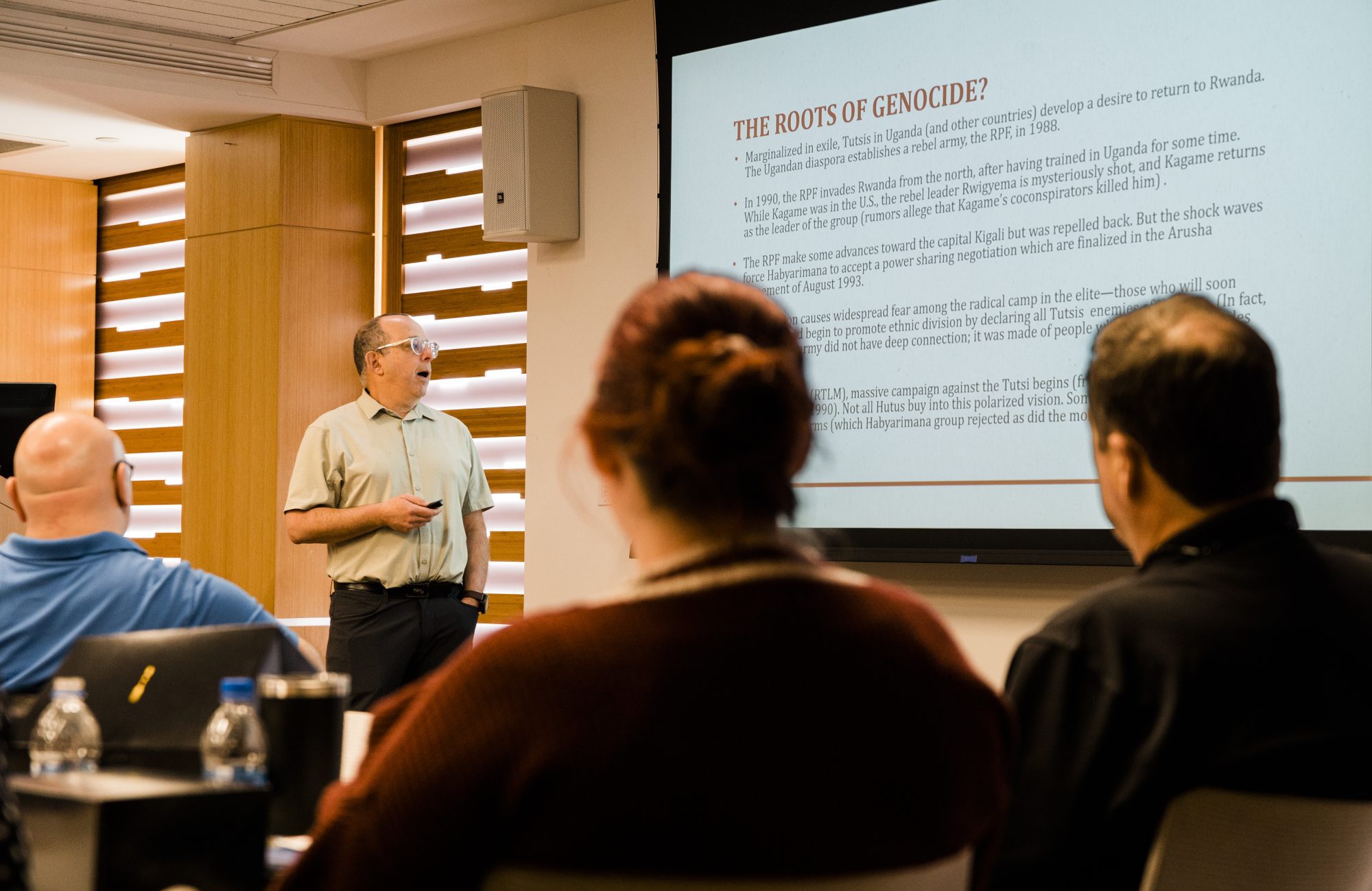SALEM — 21 Lynn high school and middle school educators, along with those from across the region, gathered at Salem State University (SSU) Wednesday morning to learn about the histories of various genocides and how to teach these topics to students.
The workshop, hosted by SSU’s Center for Genocide and Holocaust Studies, prepares educators to teach about the Holocaust and other genocides. This comes in accordance with “An Act Concerning Genocide Education,” a law signed in 2021 by then-Governor Charlie Baker mandating that middle and high school students learn about genocide and other large-scale atrocities.
“There are ways to teach about the horrors of the past that highlight important lessons for the present and future,” said SSU Center for Genocide and Holocaust Studies Director Chris Mauriello. “We want to work with our partners to prepare future generations to identify threats to human security and dignity.”
Mauriello and the Center for Holocaust and Genocide Studies Program Director Dr. Dan Eshet kicked off the workshop with a lesson on the ten stages of genocide — classification, symbolization, discrimination, dehumanization, organization, polarization, preparation, persecution, extermination, and denial.
The two explained that while the ten stages of genocide can be used as a helpful framework for students to gauge many of the common elements between genocides throughout history, not all instances of genocide fit the model perfectly.
“If you’re talking about Rwanda, if you’re talking about Armenia, you’ll have these models of stages of genocide, but you’ll see how the Armenian genocide doesn’t quite fit that model, or why maybe there’s another stage that the 10 stages doesn’t have,” Mauriello said. “We’re always challenging these models, but I don’t want to throw the model out, instead teach the model for what it is, and you can even have an assignment on how this example fits the ten stages of genocide.”
Eshet stressed the importance of teaching that the stages of genocide often overlap within a politicized framework. He said many elements of genocide do not lead to genocide when they exist independent from each other.
“The classroom bully is not a genocidist,” Eshet said.
Last year, the Massachusetts Department of Elementary and Secondary Education (DESE) awarded grants to school districts across the Commonwealth to support the new law’s implementation. DESE granted Lynn Public Schools $60,000 to expand the district’s middle and high school genocide education.
Wednesday’s workshop was part of a larger SSU training series that will cover everything from deepening curriculum about the Holocaust, to ways to educate students on race relations in the American South. The classes are accompanied by one-on-one virtual training seminars between teachers and department heads from each participating district.
“We wanted to bring teachers in and curriculum directors to say, ‘okay, how are you going to implement it in your district? What are you doing already? What do you need to do more of?’ Identify professional development opportunities, but also help the teachers implement this new curriculum,” Mauriello said.
Lynn Public Schools’ Assistant Curriculum Director for history Kristen Tabacco said the district plans to begin expanding its genocide studies curriculum in the fall after the district builds its capacity to teach difficult, yet important subjects.
“Part of the importance of us training these educators is that they have that lens of being in the classroom right now with our young people,” Tobacco said. “We need to teach this subject with care because the futures of these children are in our hands, the future of the republic is in our hands.”
Adam Donachie, a history teacher at Lynn English, said he has had lively conversations about genocide with his students and looks forward to bringing new ideas and more thorough historical anecdotes to his lessons.
Lynn Classical history teacher Jessica Dormady said she was excited to use what she learned at the workshop to build on the history department’s current genocide studies curriculum and to add new elements to genocide education in the future. She added that elements of the coursework would likely also be used to enhance the history department’s new Modern World History course.
“We’re potentially building a course centered explicitly on genocide, and we’re walking away with frameworks for discussion and course building and course development. It’s just really exciting,” Dormady said.

